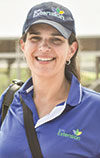Also, usually the lack of English language skills is the primary reason for not properly following work training programs, protocols and rules. It may be the dairy farm worker’s curse.
Many of the Latinos working on dairy farms or in the dairy industry have agricultural farm experiences from back home, being exposed to a range of crops and livestock production practices. Many of them also have bachelor’s degrees in agronomy, biology or veterinary studies. Their educational background is equal to the worldwide academic and professional level. It is a blessing.
The dairy industry’s dynamics are changing, trending toward a larger number of cows on a single farm with more hired employees. However, the core to success will always be the same: care, responsibility and attention toward sustainability. The everyday farm tasks to produce milk require consistently following protocols, routine and animal care practices. If you think about it, thanks to our daily work at the farm, we are sharing a part of us in almost every drop of milk consumed in America. It is a blessing.
Spanish-speaking countries in South America were conquered by the Spaniards, which led the natives of these regions to adapt and re-invent their customs and cultural identity in order to survive. The result is the richness of each Latino country. Being of Latino origin, we must feel proud with our unique sense of adaptability, flexibility and a special way to accomplish something by circumventing things in order to seek the solutions. We Latinos are great at that. It is a blessing.
The majority of us Latinos left behind our comfort zones (sense of security being close to family and friends) for many reasons. We embraced the risks far from our birthplaces and made important changes in our lives, with the hope that our decision could lead to personal growth. It is a blessing.
The challenge of working with dairy cows is finding a balance between the effort needed to work toward a better future and our capacity to integrate into a new environment.
Daily farm tasks are hard for both producers and workers. To harvest milk, cows need 24-7 care, and farm employees provide it on the same basis: 24-7. This intense work schedule affords the ability to help our families back home, offer a better education for our kids, own nice cars, buy name-brand clothes (as we used to watch on soap operas), eat out at restaurants two or more times per week and prepare nice meals at home, despite a busy schedule. It is a blessing.
We Latinos have not been communicating with confidence in English at work. However, it’s not just being capable of speaking in English. It’s also our attitude, effort and common sense. The language barrier for us Latinos affects our self-esteem; we fear being ridiculed. We are afraid of being seen as “stupid” when pronouncing or not using proper language. On the other hand, Americans feel so proud of speaking the few words they learned in Spanish, even with their bad accent or tenses. Their goal is to just communicate.
If communication barriers are hampering our growth process and work achievements, let’s get out of our comfort zones, shake off the “curse” and take the risks required to communicate in order to better enhance our dreams and hopes. We’ve embraced the risk of changing our lives with the hope of personal growth; let’s do it again. Our everyday work tasks should not be performed randomly but represent who we are and with special meaning.
Remember that people around us will react depending on our interest and motivation to accomplish our goals. Whether being a dairy farm employee is a blessing or a curse totally depends on who you are. ![]()

-
Maristela Rovai
- Assistant Professor - Extension Dairy Specialist
- South Dakota State University
- Email Maristela Rovai









